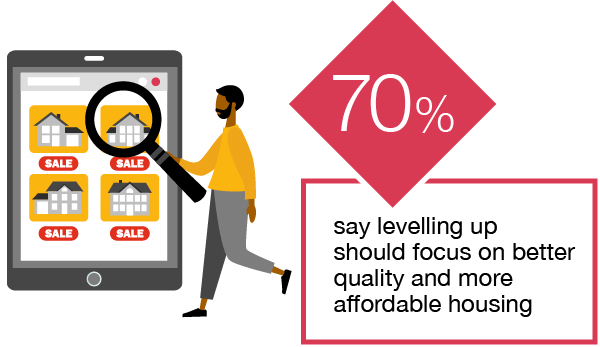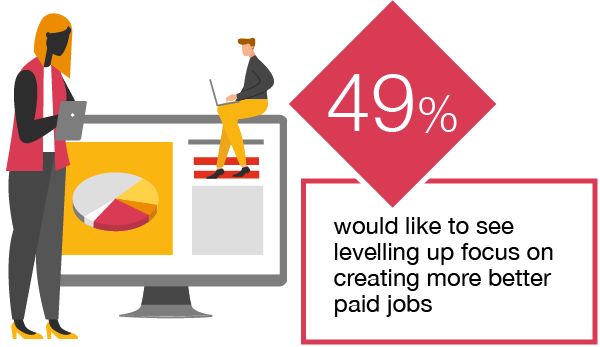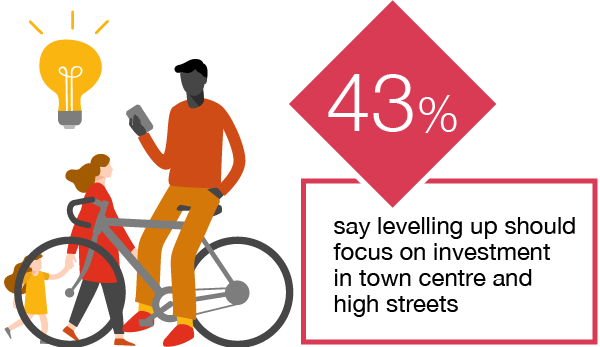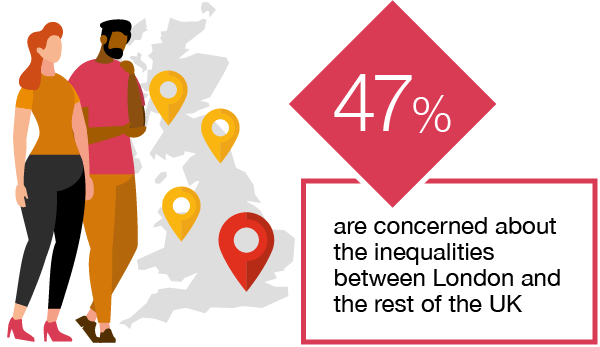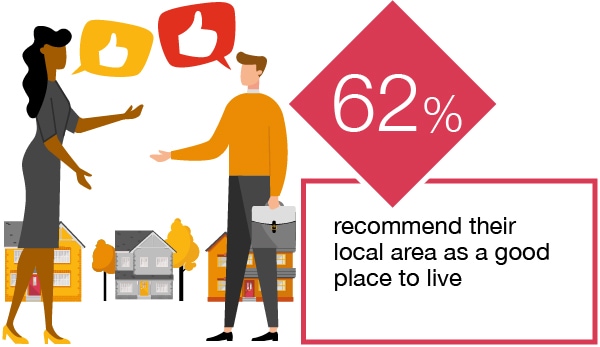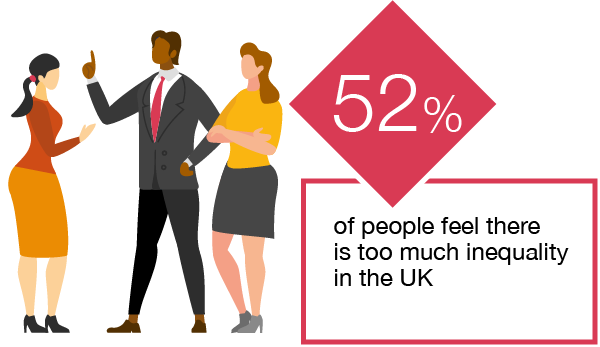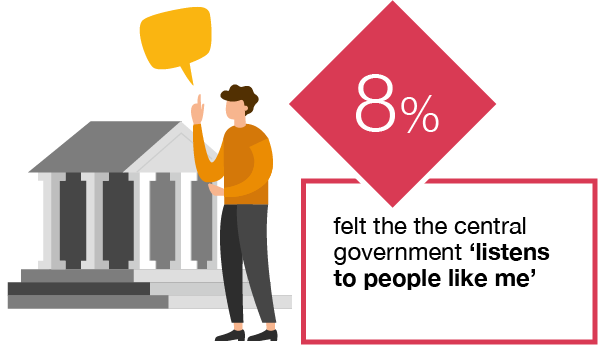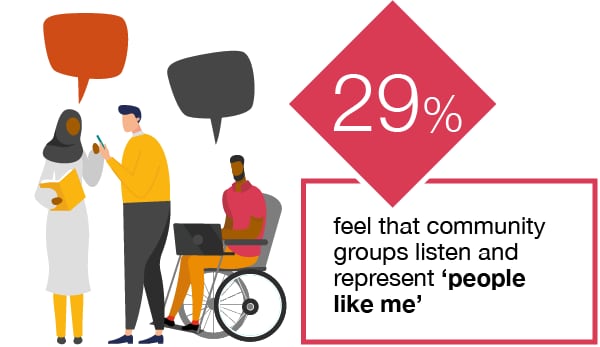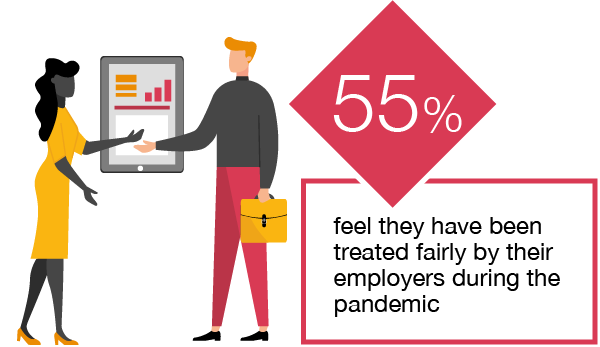Affordable and quality housing
Housing was the stand out priority for our respondents: 74% agree that the quality and affordability of housing is an important factor in the area they live and 70% agree a focus on housing would be the most effective in levelling up the country and reducing inequality.
This figure climbed even higher in some regions, including those where housing is relatively more affordable compared to other parts of the UK, including Scotland (76%), Northern Ireland (75%) and the North West (74%), highlighting the need to unpack issues around housing affordability and consider local housing market dynamics as well as regional. Housing is also notably a bigger levelling up priority for 18-24 year olds (76%) than over-55s (68%), highlighting a generational divide with young people struggling to get on to the housing ladder, as well as a geographic one.
Good quality and affordable housing, along with good jobs and a vibrant high street/town centre, are three of the five factors where the public expressed lower satisfaction in our survey (42% nationally, falling as low as 33% in the South East). Building housing across a range of tenures in the right places, balancing both affordability and quality concerns, will be key as people reassess where they live and remote working potentially opens up new opportunities away from major cities, as we are starting to see in relation to London.











